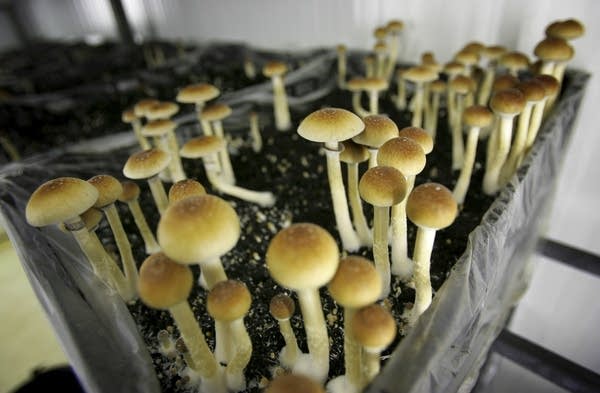Could psychedelics be the future of mental health?
We talk with a researcher at the U of M

Magic mushrooms are seen in a grow room at the Procare farm in Hazerswoude, central Netherlands.
Peter Dejong | AP file
Go Deeper.
Create an account or log in to save stories.
Like this?
Thanks for liking this story! We have added it to a list of your favorite stories.


